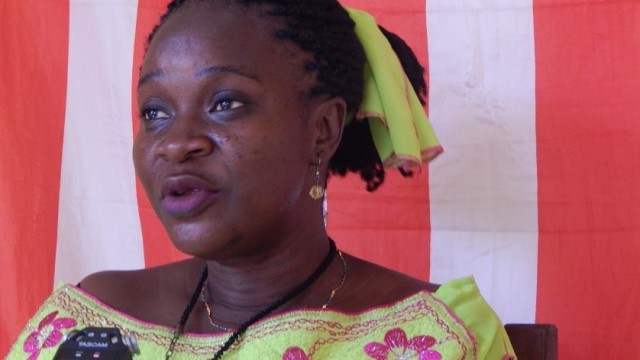President Ellen Johnson Sirleaf’s administration has been promoting a decentralization platform since her arrival in office. At last year’s State of the Nation address, Sirleaf promised to work with the legislature to pass the already-drafted Local Government Act; however, the president failed to submit the bill, and her promises amounted to little more than just words.
Today, all businesses must come to Monrovia to register. Anyone in the outlying counties intending to register a vehicle must bring it to the capital city. Land registration and almost all activities that require citizens to interact with their government require physically traveling to Monrovia.
Cities and counties have no elected governments, even though the mayors of all cities are prescribed by law to be elected by citizens. A Supreme Court decision allowed Sirleaf to suspend indefinitely all municipal elections in the name of financial constraints and appoint all leaders.
These appointed leaders are not chosen by the people but can serve to push the president’s or their own agenda. For example, Mayor Roseline Davis of Unification City in Margibi decided in November 2015 to ban all business activities on Sundays, despite the unpopularity of the decision.

Unification City Mayor, Roseline Davis. Photo: Gbatemah Senah
In explaining her decision, Davis said, “We got seven days in a week, you can do all your selling between Monday and Saturday and the one day must be reserved for God.†Such incidences are widespread and as Davis herself said, she was appointed by the president and is therefore only accountable to Sirleaf.
As Sirleaf’s term draws to an end, there are suggestions that she would like to speed up the process of moving Liberia towards a government less focused on Monrovia. The proposed law that aims to achieve this, the Local Government Act, was drafted by the Governance Commission.
If passed into law, the bill would finally allow citizens to elect leaders at the county, city, township, district, chiefdom, clan, and general town levels. It would empower local governments to generate revenues through property taxes, business licenses and permits, fees from professional licenses, fines, among other things.
The Bush Chicken Editorial Board reviewed the draft law, which can be found here. We generally agree it is an improvement from the current position. However, there are some aspects of the law that we found lacking specificity, potentially stifling to democracy, or just dangerous in its prescription.
One of the first prescriptions of the law would be for “all statutes creating statutory districts, cities, townships and boroughs†to be nullified, with each jurisdiction being allowed to “petition the legislature for classification and chartering.â€
While we see how this may be necessary to ensure that these localities meet all the criteria established in the law, this may cause issues for existing local governments in the middle of projects, especially if the process of chartering the towns and cities are not done speedily.
The legislature is not known for being efficient and making quick decisions, especially given situations like the Decent Work Bill which sat with the legislature for five years before being passed. There needs to be some mechanism established to ensure that existing local governments do not spend a year or more waiting to be chartered.
Additionally, the criteria for chartering a city and town are unreasonable or too open for interpretation. While the population requirements (25,000 for cities and 10,000 for townships) make sense, the proposed law is not specific on the source of the population statistics. Should it be the census that is taken every decade, or a more frequent Demographic and Health Survey but which may not be as accurate as the census?
The criteria for chartering a city or township also require the existence of “basic essential utilities for proper human settlement†including electricity, safe drinking water, and sewage services. In the Liberian context, it is almost impossible to meet these criteria before chartering a city or township, as the administrative structure would likely not exist to provide these services.
We were also concerned about the requirements for various offices. The law would require occupants of the offices of the district commissioner and superintendent to have a bachelor degree. This is an arbitrary criterion that unnecessarily disenfranchises people who may not have the opportunity to go outside the county for education, especially in counties that have no educational facility granting Bachelor’s.
Additionally, it makes even less sense given that even the presidency of Liberia has no such requirement. Moreover, a Bachelor’s degree is no guarantee of competency. In fact, in Scandinavian countries, it is not unusual for their prime ministers to have no Bachelor’s degree. Consider Sweden’s current Prime Minister Stefan Löfvén, who dropped out of college and worked as a welder.
The proposed law also says chiefs “must have a minimum of basic education qualification,†which is a vague requirement that might as well not be included.
A major red flag that we saw in the bill is its attempt to ban political parties from participating in local elections. In the language of the bill, “a candidate shall not present himself/herself as a political party candidate.†It seems unnecessary to ban political parties from local governance as it would be a good way to strengthen these parties, many of which already lack proper structure.
Besides, to an extent, those running for office will have some sort of leanings and will probably act in the interest of certain parties, at least at an ideological level. What exactly is accomplished by infringing on the rights of political parties with respect to local politics?
One aspect of the bill that we found exciting is that the proposed law would now allow citizens to be able to recall their elected officials if they are not satisfied with their performance. However, the process may not be too empowering for citizens.
The recall places too much burden on the people to get petitions – at 30% of registered voters. Perhaps 30% of the last election turnout might be a better option. Basing the threshold on the last turnout is how it is typically done across the world in localities that allow recalls.
The prescription for recall further takes away empowerment from citizens because it requires recall petitions to be approved by other existing elected officials. Officials who are already elected may want to protect one of their colleagues. Citizens should be able to hold directly an election once the recall petition reaches the threshold to decide whether or not to recall the official.
There are many other issues in the bill that need more work, such as how youth and women’s representatives on the councils are elected. The election of those council members needs to depend less on organizations registered with the Ministry of Youth and Sports and the Ministry of Gender and be opened to the public. Otherwise, this would be more of a selection than an election.
However, the bill is a step in the right direction, and the president should submit it to the legislature to allow them to fine-tune its various elements. The passage of the bill could allow ordinary Liberians to play a bigger role in their country’s politics. Additionally, it will open up space for aspiring politicians to make a difference other than just at the level of presidency or legislature.



